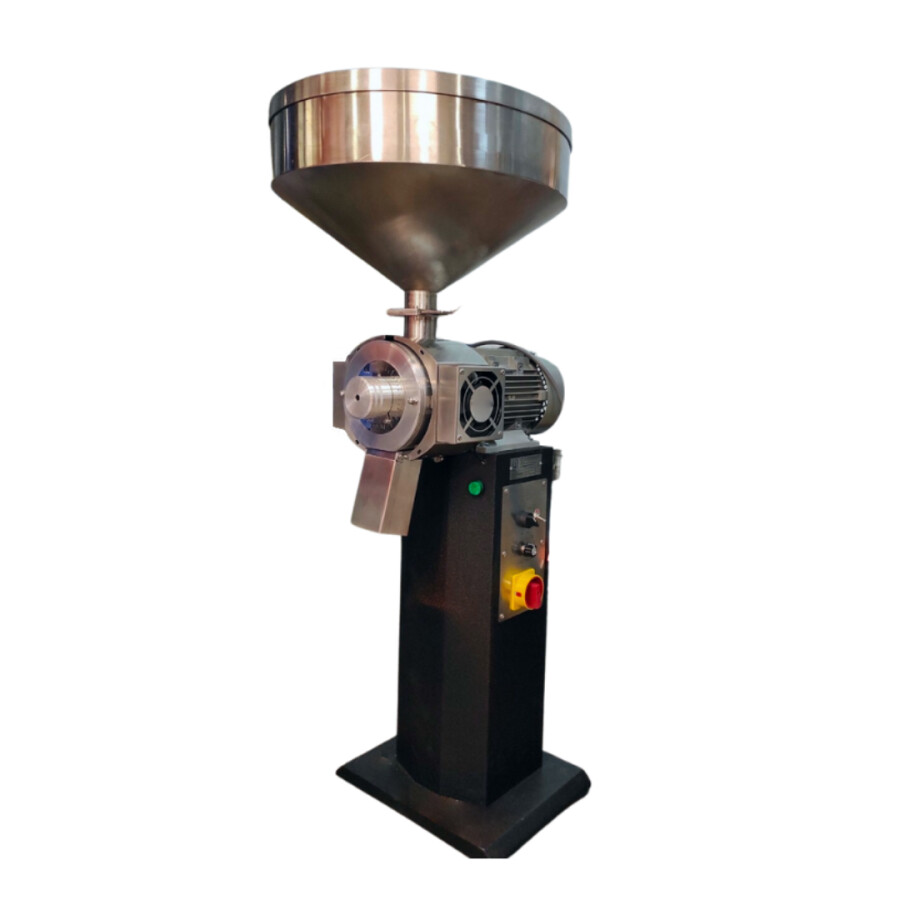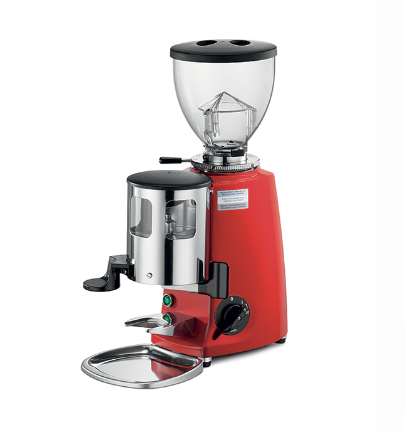How to Pick the Perfect Industrial Coffee Grinder for Your Service
Selecting the suitable commercial coffee grinder for your organization is a diverse choice that calls for careful consideration of a number of crucial variables. Additionally, comprehending the numerous kinds of mills available can considerably affect your functional efficiency.
Assess Your Grinding Needs
When choosing a commercial coffee mill, one must first examine their grinding requirements to make certain optimum efficiency and consistency. This initial examination includes recognizing the quantity of coffee to be refined daily, along with the desired grind size for numerous developing approaches. A high-capacity mill may be essential for companies serving big amounts of coffee, while smaller procedures may discover a much more small model sufficient.
Moreover, it is important to take into consideration the kinds of coffee beans being utilized, as various beans might call for particular grinding techniques to attain the most effective taste account. Oily beans might necessitate a mill created to deal with such features without overheating or clumping.
One more vital factor is the called for work consistency. Specialty coffee businesses usually require accurate work sizes to enhance removal and taste, making it important to choose a mill that can supply consistent results. Reviewing the available room and electrical needs will aid in selecting a mill that fits effortlessly into your functional process. By thoroughly analyzing these variables, companies can make enlightened decisions that line up with their coffee grinding demands, eventually leading to a premium product and completely satisfied customers.
Understand Mill Kind
Recognizing the various kinds of commercial coffee mills is crucial for making a notified choice that satisfies details functional requirements. There are primarily two classifications of mills: blade mills and burr mills.
Blade mills utilize spinning blades to chop the coffee beans, resulting in an irregular work dimension - Industrial Coffee Grinder. While they may be a lot more economical, they are typically not ideal for business applications where precision is crucial
On the various other hand, burr mills provide a much more uniform grind by crushing the beans between 2 surfaces. They can be additional categorized into flat burr and conical burr grinders. Apartment burr grinders offer a consistent grind dimension and are commonly preferred for coffee preparation, while conical burr mills are functional and can take care of a series of mixture techniques, from coffee to French press.
When selecting a grinder, consider the details needs of your service, including desired work uniformity, production quantity, and the kinds of coffee drinks you prepare to provide - Industrial Coffee Grinder. Each mill kind has its advantages and constraints, so understanding these subtleties allows notified decision-making that aligns with functional goals
Evaluate Grind Dimension Consistency
Attaining grind dimension consistency is important for producing high-grade coffee, as variants in particle dimension can significantly influence extraction and taste. When selecting a commercial coffee mill, it is critical to examine how well the maker maintains harmony in grind size throughout different sets. Inconsistent work sizes can lead to irregular extraction, causing a cup that may taste overly bitter or weak.
To analyze grind dimension consistency, think about mills with functions such as adjustable work settings and top notch burrs. Burr grinders, particularly, master producing uniform bit dimensions compared to blade grinders. The product and form of the burrs play an important function, with stainless-steel and ceramic choices offering longevity and accuracy.

Think About Production Capability
In the busy globe of coffee production, considering production capacity is critical for services intending to satisfy need without giving up top quality. The production capability of a commercial coffee grinder directly influences a company's ability to meet orders successfully, take care of supply, and reply to rising and fall market fads.
When assessing manufacturing capacity, it is important to assess the grinder's output price, typically gauged in extra pounds per hour. This dimension must line up with your service's here forecasted sales volume and development targets. A coffee shop with a high turn over may call for a mill that can process a number of hundred pounds daily, while a smaller procedure may suffice with a reduced capability model.
Furthermore, consider the kind of coffee being refined. Different beans and blends might impact grinding rate and effectiveness, requiring a grinder efficient in dealing with varied production demands. It's likewise worth considering the mill's capability to keep constant quality under high outcome conditions, as any variations can impact the last product.
Inevitably, choosing a mill that matches your service's production ability will guarantee you stay affordable and responsive to client assumptions.

Spending Plan and Upkeep Aspects
When assessing the appropriate industrial coffee budget, grinder and maintenance elements play a significant function in the overall decision-making process. A first investment in a top notch mill can yield long-term benefits, but it's vital to develop a clear budget that aligns with your company's operational needs. Consider both the acquisition price and prospective operational expenses, such as energy consumption and substitute parts.
Industrial coffee grinders require regular maintenance to make sure ideal performance and durability. Assess the producer's recommendations for upkeep, consisting of cleaning timetables and components replacement, as these will influence lasting operational costs.

Buying a grinder that is sturdy yet simple to maintain can conserve money with time. While lower-priced choices might be appealing, they might incur greater upkeep costs and minimized efficiency. Inevitably, balancing preliminary costs with long-term maintenance and functional performance will certainly guide you to the best selection for your organization's coffee grinding requirements.
Verdict
Picking the perfect industrial coffee grinder necessitates a complete analysis of grinding needs, grinder types, grind dimension uniformity, manufacturing capacity, and financial factors to consider. An appropriate mill not just boosts the top quality of the coffee generated yet also contributes to the overall success and profitability of the enterprise.
Specialty coffee businesses frequently demand precise work sizes to boost removal and taste, making it crucial to select a grinder that can deliver uniform outcomes. Apartment burr mills provide a consistent work dimension and are commonly preferred for espresso preparation, while conical burr mills are functional and can manage why not try this out a variety of brew approaches, from coffee to French press.
When choosing a commercial coffee grinder, it is essential to evaluate just how well the maker preserves uniformity in work dimension across different sets. Burr grinders, in particular, succeed in creating uniform fragment dimensions compared to blade mills.Choosing the optimal industrial coffee mill necessitates a comprehensive analysis of grinding requirements, mill types, grind size uniformity, production ability, and budgetary factors to consider.